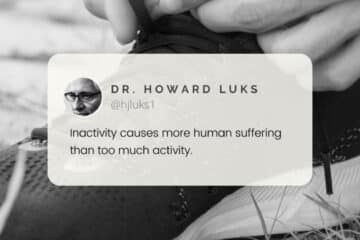
Mitochondria are often referred to as the “powerhouses” of our cells because they are responsible for generating the energy that our cells need to function. Increasing the fitness of our mitochondria can have numerous benefits, including improved endurance and increased energy levels. In this blog post, we will discuss some training techniques that can help improve mitochondrial fitness and build endurance skills.
First, let’s take a closer look at what mitochondria are and how they work. Mitochondria are small, organelle-like structures that are found in most of our cells. They are responsible for generating the majority of the energy that our cells need to function. This process, known as cellular respiration, involves the breakdown of glucose (sugar) and oxygen to produce a form of energy called ATP (adenosine triphosphate). ATP is then used by our cells to power various cellular processes, such as muscle contraction and nerve impulse transmission.
One way to improve the fitness of our mitochondria is by engaging in regular, moderate-intensity aerobic exercise. Aerobic exercise, also known as “cardio,” is any activity that increases the heart rate and improves the body’s ability to use oxygen. Examples of aerobic exercise include running, cycling, swimming, and walking. When we engage in aerobic exercise, our mitochondria are forced to work harder to produce the energy that our muscles need to function. Over time, this increased demand can cause our mitochondria to adapt and become more efficient at generating energy.
In addition to aerobic exercise, there are also specific training techniques that can help improve mitochondrial fitness and build endurance skills. One such technique is interval training, which involves alternating periods of high-intensity exercise with periods of rest or low-intensity exercise. Interval training can be an effective way to improve endurance because it forces our mitochondria to work harder and adapt to the increased demand for energy.
Another effective training technique is endurance training, which involves gradually increasing the duration and intensity of exercise over time. Endurance training can help improve mitochondrial fitness by increasing the number of mitochondria in our muscles, as well as their ability to produce energy efficiently.
It’s important to note that, while training can improve the fitness of our mitochondria, it’s also important to maintain a healthy diet. Eating a balanced diet that includes plenty of fruits, vegetables, and whole grains can help provide the nutrients that our mitochondria need to function properly. In addition, it’s important to stay hydrated and to get enough rest and recovery time between workouts.
In conclusion, improving the fitness of our mitochondria can have numerous benefits, including increased endurance and energy levels. Regular, moderate-intensity aerobic exercise is a great way to improve mitochondrial fitness, and specific training techniques, such as interval training and endurance training, can also be effective. In addition to training, it’s important to maintain a healthy diet and to get enough rest and recovery time. By following these guidelines, you can help improve the fitness of your mitochondria and build endurance skills.
Do you have questions regarding an Orthopedic injury or longevity?
Do you want to talk to an expert who can listen to you for 45-60 minutes and explain the options in detail?
Dr. Howard Luks offers remote guidance sessions to review your X-ray or MRI images and explain your options.
Dr. Luks has also received hundreds of requests for educational sessions on the topics discussed in his book, Longevity Simplified.











